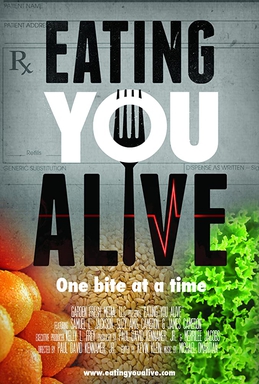
A disease is a particular abnormal condition that negatively affects the structure or function of all or part of an organism, and that is not immediately due to any external injury. Diseases are often known to be medical conditions that are associated with specific signs and symptoms. A disease may be caused by external factors such as pathogens or by internal dysfunctions. For example, internal dysfunctions of the immune system can produce a variety of different diseases, including various forms of immunodeficiency, hypersensitivity, allergies and autoimmune disorders.

Stress, either physiological, biological or psychological, is an organism's response to a stressor such as an environmental condition. Stress is the body's method of reacting to a condition such as a threat, challenge or physical and psychological barrier. There are two hormones that an individual produces during a stressful situation, these are well known as adrenaline and cortisol. There are two kinds of stress hormone levels. Resting (basal) cortisol levels are normal everyday quantities that are essential for standard functioning. Reactive cortisol levels are increases in cortisol in response to stressors. Stimuli that alter an organism's environment are responded to by multiple systems in the body. In humans and most mammals, the autonomic nervous system and hypothalamic-pituitary-adrenal (HPA) axis are the two major systems that respond to stress.

Myalgia is the medical term for muscle pain. Myalgia is a symptom of many diseases. The most common cause of acute myalgia is the overuse of a muscle or group of muscles; another likely cause is viral infection, especially when there has been no trauma.
In medicine, comorbidity - from Latin morbus ("sickness"), co ("together"), -ity - is the presence of one or more additional conditions often co-occurring with a primary condition. Comorbidity describes the effect of all other conditions an individual patient might have other than the primary condition of interest, and can be physiological or psychological. In the context of mental health, comorbidity often refers to disorders that are often coexistent with each other, such as depression and anxiety disorders. The concept of multimorbidity is related to comorbidity but presents a different meaning and approach.

Kidney failure, also known as end-stage kidney disease, is a medical condition in which the kidneys can no longer adequately filter waste products from the blood, functioning at less than 15% of normal levels. Kidney failure is classified as either acute kidney failure, which develops rapidly and may resolve; and chronic kidney failure, which develops slowly and can often be irreversible. Symptoms may include leg swelling, feeling tired, vomiting, loss of appetite, and confusion. Complications of acute and chronic failure include uremia, hyperkalaemia, and volume overload. Complications of chronic failure also include heart disease, high blood pressure, and anaemia.

Farmer's lung is a hypersensitivity pneumonitis induced by the inhalation of biologic dusts coming from hay dust or mold spores or any other agricultural products. It results in a type III hypersensitivity inflammatory response and can progress to become a chronic condition which is considered potentially dangerous.
A chronic condition is a health condition or disease that is persistent or otherwise long-lasting in its effects or a disease that comes with time. The term "chronic" is often applied when the course of the disease lasts for more than three months. Common chronic diseases include diabetes, functional gastrointestinal disorder, eczema, arthritis, asthma, cancer, chronic obstructive pulmonary disease, Lyme disease, autoimmune diseases, genetic disorders and some viral diseases such as hepatitis C and acquired immunodeficiency syndrome. An illness which is lifelong because it ends in death is a terminal illness. It is possible and not unexpected for an illness to change in definition from terminal to chronic. Diabetes and HIV for example were once terminal yet are now considered chronic due to the availability of insulin for diabetics and daily drug treatment for individuals with HIV which allow these individuals to live while managing symptoms.

Self-care has been defined as the process of establishing behaviors to ensure holistic well-being of oneself, to promote health, and actively manage illness when it occurs. Individuals engage in some form of self-care daily with food choices, exercise, sleep, reading and dental care. Altogether they follow a fully customised morning routine. Self-care is not only a solo activity as the community—a group that supports the person performing self-care—overall plays a large role in access to, implementation of, and success of self-care activities.
Chronic care refers to medical care which addresses pre-existing or long-term illness, as opposed to acute care which is concerned with short term or severe illness of brief duration. Chronic medical conditions include asthma, diabetes, emphysema, chronic bronchitis, congestive heart disease, cirrhosis of the liver, hypertension and depression. Without effective treatment chronic conditions may lead to disability.
Chronic care management encompasses the oversight and education activities conducted by health care professionals to help patients with chronic diseases and health conditions such as diabetes, high blood pressure, systemic lupus erythematosus, multiple sclerosis, and sleep apnea learn to understand their condition and live successfully with it. This term is equivalent to disease management for chronic conditions. The work involves motivating patients to persist in necessary therapies and interventions and helping them to achieve an ongoing, reasonable quality of life.

The history of chronic fatigue syndrome is thought to date back to the 19th century and before.
The Lightning Process (LP) is a three-day personal training programme developed and trademarked by British osteopath Phil Parker. It claims to be beneficial for various conditions, including chronic fatigue syndrome, depression and chronic pain.
Patricia A. Fennell is chief executive officer of Albany Health Management Associates. She is a clinician, research scientist, educator, and author specializing in chronic illness, chronic and post-viral syndromes, trauma, forensics, hospice, global health care concerns, autoimmune and post-viral disease, clinical education, and training. She is involved in research design and development.

Gulf War syndrome or Gulf War illness is a chronic and multi-symptomatic disorder affecting military veterans of both sides of the 1990–1991 Persian Gulf War. A wide range of acute and chronic symptoms have been linked to it, including fatigue, muscle pain, cognitive problems, insomnia, rashes and diarrhea. Approximately 250,000 of the 697,000 U.S. veterans who served in the 1991 Gulf War have enduring chronic multi-symptom illness, a condition with serious consequences.

Chronic fatigue syndrome (CFS), also called myalgic encephalomyelitis (ME) or ME/CFS, is a complex, debilitating, long-term medical condition. The causes and mechanisms of the disease are not fully understood. Distinguishing core symptoms are lengthy exacerbations or flare-ups of the illness following ordinary minor physical or mental activity, known as post-exertional malaise (PEM); greatly diminished capacity to accomplish tasks that were routine before the illness; and sleep disturbances. Orthostatic intolerance and cognitive dysfunction are also diagnostic. Frequently and variably, other common symptoms occur involving numerous body systems, and chronic pain is common. The often incapacitating fatigue in CFS is different from that caused by normal strenuous ongoing exertion, is not significantly relieved by rest, and is not due to a previous medical condition. Diagnosis is based on the person's symptoms because no confirmed diagnostic test is available.
Sidney Katz, MD was a pioneering American physician, scientist, educator, author, and public servant who developed the Index of Independence of Activities for Daily Living (ADLs) in a career spanning more than sixty years. He made several other advances in geriatric care, including the U.S. Nursing Home Reform Act of 1987, which established basic rights for nursing home residents. Katz received several public and private awards, including the Maxwell A. Pollak Award (1993) and the American Geriatrics Society’s (AGS) Foundation for Health in Aging (2001). The AGS award was also won by former US President Jimmy Carter and poet Maya Angelou.

The spoon theory is a metaphor describing the amount of physical and/or mental energy that a person has available for daily activities and tasks, and how it can become limited. It was coined by writer and blogger Christine Miserandino in 2003 as a way to express how it felt to have lupus; explaining the viewpoint in a diner, she gave her friend a handful of spoons and described them as units of energy to be spent performing everyday actions, representing how chronic illness forced her to plan out days and actions in advance so as to not run out of energy.
Afflicted is an American documentary television series on Netflix. The show follows individuals suffering from various chronic diseases and illnesses, seeking treatment and cures. Netflix released all seven episodes of its first season on August 10, 2018.

Eating You Alive is a 2018 vegan health documentary film about why Americans are suffering from chronic diseases such as cardiovascular disease, diabetes, obesity, autoimmune disease, among other diseases, and whether the outcome can be changed.











